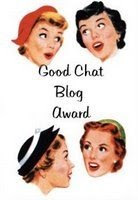 For some reason I woke up yesterday thinking about words that start with "dis." I've disassembled things that had been previously assembled, and I've dismantled things, but I don't recall them being mantled.
For some reason I woke up yesterday thinking about words that start with "dis." I've disassembled things that had been previously assembled, and I've dismantled things, but I don't recall them being mantled.We've all heard of disgruntled postal workers, but you never hear about the gruntled ones.
When you were a kid and you wanted a pony for Christmas, and you didn't get one, you were disappointed. But if you wanted a pony and you got one, did you feel appointed?
I've been disturbed by news, but can't remember being turbed by it. Although I'm sure I have been.
And when was the last time you were mayed? Hopefully you are not always dismayed.
On that funniest video program, when I'd see a baby puke up on something I'd think it was disgusting, but when I'd see a cute kitten video, I don't remember thinking that it was gusting.
Many adults are disillusioned when they find out their pet did not in fact go to live on a farm, but if that farmer were able to show them pictures of Tippy playing happily on that farm for years, would they then be illusioned?
You may want to distance yourself from old friends, but if one of your old friends happens to win the Nobel Peace Prize, would you want to tance yourself to them?
On the other hand, many "dis" words have a counterpart: Agree and disagree, entangle and disentangle, appear and disappear, organize and disorganize, passionate and dispassionate, inclined and disinclined, favour and disfavour, obey and disobey, to name a few. I just think it's weird how many of them do not.
So I hope I have not distressed you and made you feel discombobulated because it's much better to feel tressed and combobulated. I guess.







9 comments:
Discombobulated is one of my favourite words EVAH!
That's an hilarious post which I totally disdetest. Have a dishorrible day!
Oh, this is interesting because those words without the "dis" prefix don't actually sound like words. But they are. And there is actually some logic to the English language. You CAN be gruntled (satisfied) and "turbed" is from the root "turbid". And "appointed" in the sense of equipped/necessary makes sense with the "dis" because the original meaning was "not well equipped". "Gust" once meant a passion. Illusion is an easy one. And the original meaning of "mayed" meant to be full of power/resolve -- so you can see how dismayed evolved from that. I'm so happy that my linguistics courses can finally be put to some use!!
I don't know, XUP, it always seemed to me that if I was to be gruntled it'd be a bad thing, whether it's a mood or something someone did to me.
Do you think people learning English get the dis and un confused? I am dishappy today, or I am feeling unpleased. One of my favorite dis words is disheveled. Discombobulated is right up there though!
Jazz,
~~You have so many favorite words, I'm thinking you're a cheap date.
Mr.Jazz,
~~I hope I didn't disunderstand that.
Xup,
~~If you really want to put it to use, start using those words. I dare you.
Ticknart,
~~And how would your date respond if you kissed her goodnight and told her how gruntled you were?
Carole,
~~Well you are always heveled, that's for sure.
I use "gruntled" and "heveled" all the time, although I'm not sure the latter is even a word. People think I'm goofing around when I use them anyway so it doesn't matter if they're real or not
Discombobulated is one of my favorite words & I don't use it enough.
I hope you tance me soon.
Post a Comment